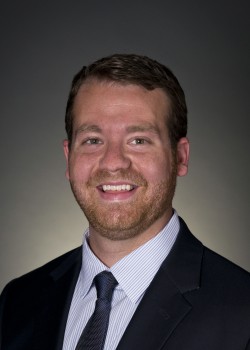You are here
Ben Polak '07

Details
What is your current job?
Currently I'm on a long-term internship at Nike, Inc. in Portland, OR. The internship is part of a 2-year, dual degree graduate program at MIT. I'm scheduled to graduate in the Spring of 2014 with an MBA from MIT Sloan and a Masters in Mechanical Engineering from the School of Engineering. The program is focused on supply chain, manufacturing, and operations.
Why did you choose this profession?
Prior to graduate school, I worked for three years as a management consultant in Washington, DC. Yearning to break into operations, where I felt that I could more directly influence outcomes and work on problems that bridged the technical and business fields, I left consulting to take a role as a manufacturing supervisor at a helicopter factory in Dallas, TX. I enjoyed that experience and was looking for more formal operations training, which led me to the graduate program at MIT.
What more do you wish to accomplish in your professional career?
I would like to run operations at a large product-focused corporation or potentially start my own company. I enjoy both the tactical day-to-day problem solving innate to operations and the bigger-picture, more-strategic type roles.
Tell us about a decision or change you made that turned out to be a positive career move.
Leaving Washington, DC, and the world of consulting to working 2nd shift in a factory in Texas was a huge change for me. I had no contacts in the Dallas-Fort Worth area and I knew next to nothing about manufacturing. But it turned out to be fantastic. I learned more in my first two months there then I had in the prior two years consulting. Moreover, I identified my passion and ultimately set myself on the trajectory I'm on today.
How has Haverford influenced your professional career?
Most importantly, Haverford taught me how to think critically and develop creative solutions to problems. That skill has proved valuable time in again, whether handling a production issue on the shop floor or developing an optimization model at my desk. A close second would be the importance Haverford placed on effective writing and communication. I've found having the right answer is useless if you can't communicate it in such a way that anyone can understand. Finally, through my involvement with athletics, I learned how to lead a diverse group of people towards a common goal, which has been key regardless of my position on a team or in a company.



